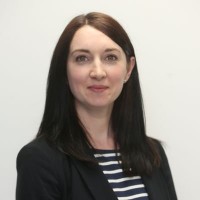 New rules allowing journalists to report on family court cases in England and Wales have finally come into force this week.
New rules allowing journalists to report on family court cases in England and Wales have finally come into force this week.
As previously reported on HTFP, a pilot scheme originally limited to three court centres and later extended to a number of other locations has now been rolled out across England and Wales with effect from Monday.
It means accredited journalists can now speak to families about their ongoing cases, report what they see and hear in court, and quote from key documents – provided they keep those families anonymous.
While journalists have been allowed to attend the private hearings since 2009, they have had no right to report on them.
Reach editorial director for London and East of England Natalie Fahy, pictured, was among editors who welcomed the move.
She said: “As a former court reporter, I know how important it is to shed light on this hugely under-reported area of our justice system.
“Decisions are being made behind closed doors which have a huge impact on people’s lives and – despite the reporting restrictions – it is vitally important we bring this out into the public arena.
“Justice needs to be seen to be done and access to this area of the court system is as important as the other areas we cover day in, day out.”
Examples of local press journalists taking advantage of the new rules include Derbyshire Live local democracy reporter Eddie Bisknell who produced a story about a father who had non-consensual sex with his own daughter.
Eddie also wrote a piece about his experience visiting family court for the first time, as part of the pilot.
Monday’s change followed a two-year “transparency pilot” which began with the family courts in Leeds, Cardiff and Carlisle.
Hearings at Liverpool, Manchester, West Yorkshire, Kingston-upon-Hull, Nottingham, Stoke, Derby, Birmingham, the Central Family Court, East London, West London, Dorset, Truro, Luton, Guildford and Milton Keynes were subsequently made subject to the same trial.





 Follow HTFP on Twitter
Follow HTFP on Twitter